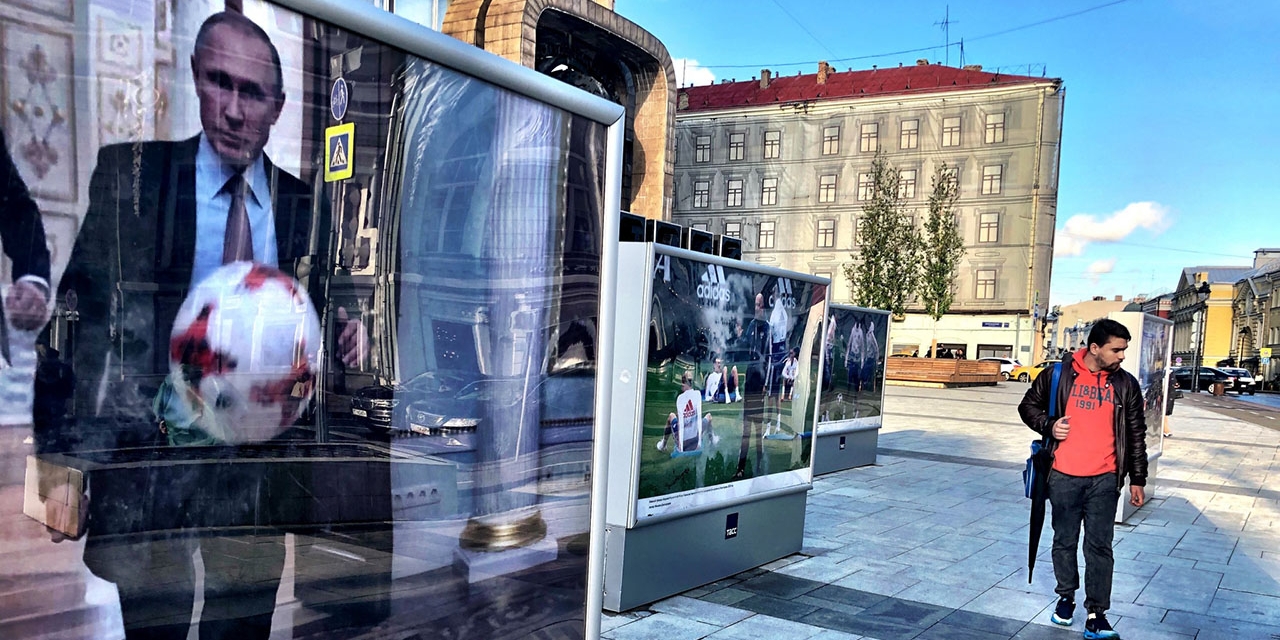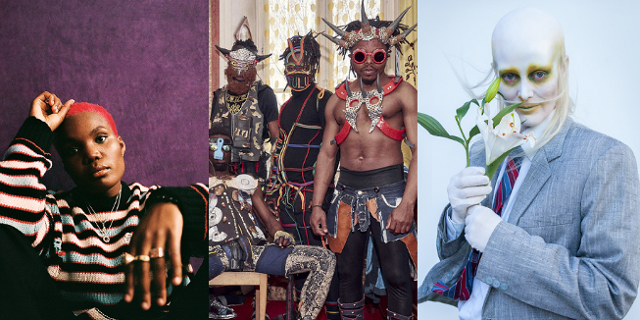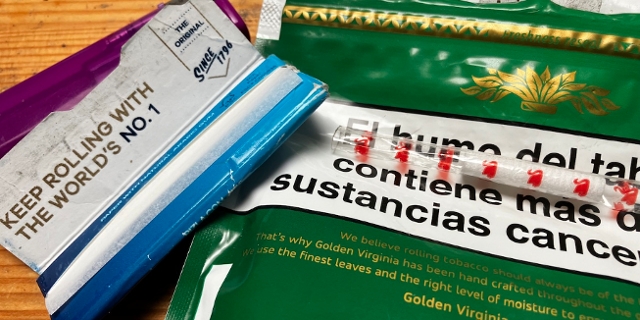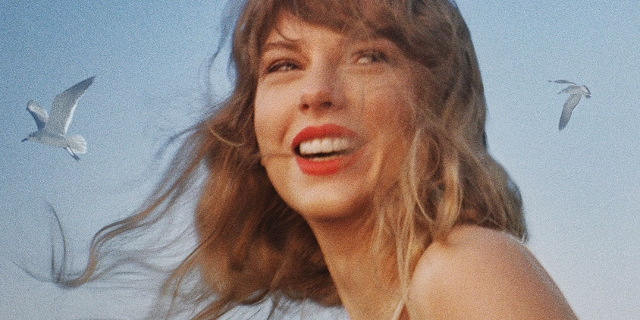Pull back the curtain
By Charles Maynes, Moscow
Back in 2010, President Vladimir Putin helped secure Russia’s bid for World Cup with guarantees he would introduce the world to an open and welcoming Russia.
This week, Putin said Russia had made good on its promises.
“We’ve done everything to ensure our guests — sportsmen, experts, and, of course, fans feel at home in Russia,” said Putin in a video address released by the Kremlin. “We have opened our country and our hearts to the world.”
Indeed, with the final countdown to Thursday’s evening’s opening match between Russia and Saudi Arabia underway, the stadiums appear ready, the fan zones (nearly) built, the bartenders ready to pour the beer, and — Russian authorities insist — the hooligans instructed to stay away.
But as Russia prepares to host world football fans on the biggest stage of ‘the beautiful game’, human rights defenders warn the Kremlin is failing to meet one other obligation: social and political freedoms at home.
“There is no doubt that the government is craving this international prestige and wants to put Russia in the best light possible,” says Yulia Gorbunova, a researcher at Human Rights Watch’s Moscow division.
The problem, adds Gorbunova, is this: “The situation of human rights now is the worst it’s been since the fall of the Soviet Union.”
Sochi Redux
Admittedly, there’s a certain ‘deja vu’ in the air.
Near identical charges were levied against Russia before it hosted the 2014 Olympic Winter Games in Sochi. Then as now, concerns range over everything from political repressions, migrant labor violations in building sports infrastructure and pressure against LGBT groups to environmental and animal rights violations.
And yet, in 2014, Putin sought to appease his critics to a degree. Ahead of the Sochi Games, the Russian leader made several high profile gestures — including the amnesty of jailed Greenpeace activists, members of the feminist punk collective Pussy Riot, and oligarch-turned-prisoner of conscience Mikhail Khodorkvosky in a bid to ease western pressure.
This time? No such luck.
“Russia has grown more and more resistant to international criticism,” says Gorbunova. “And as the international criticism intensifies, Russia becomes more self-assertive and shows how the Kremlin basically doesn’t care what international community thinks."
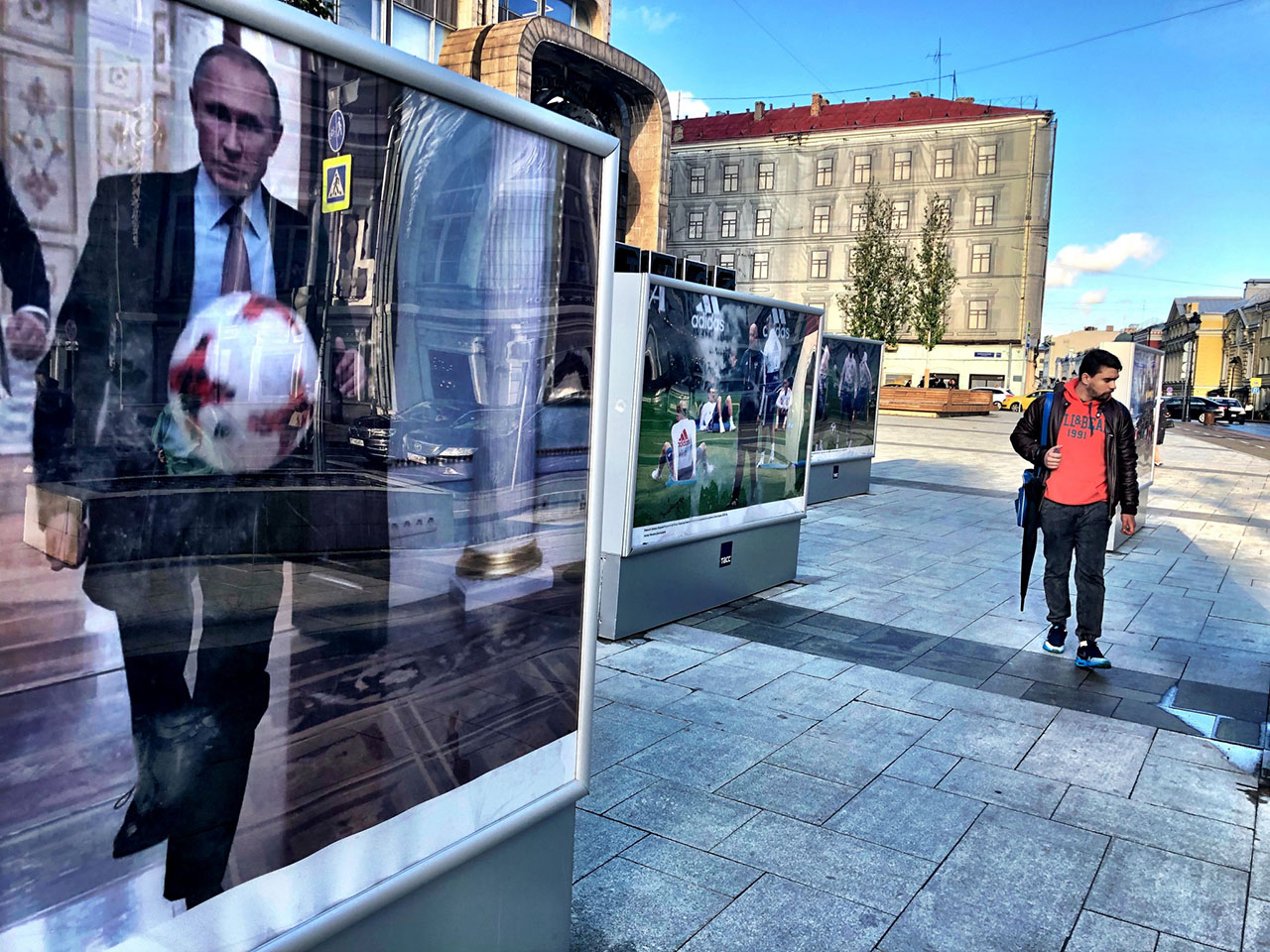
Charles Maynes
What a Difference 4 Years Can Make
Key to this shift is Russia’s 2014 annexation of Crimea and the subsequent fallout in Russia-West relations over western sanctions, the downing of Malaysian Air flight MH17, election meddling allegations, and charges the Russian government engineered a doping program aimed at securing a (now tarnished) 1st place finish in Sochi among other issues.
The constant criticism has so inured the Kremlin to western harangues that most are now merely met with a shrug and denial.
“Putin saw that there’s no need to worry about these things,” says Leonid Volkov, a pro-democracy activist and key advisor to opposition leader Alexey Navalny, currently serving a 30-day jail term for organizing anti-government protests.
“Political prisoners, downed passenger planes over Ukraine, bombs in Syria…it doesn’t matter. Everyone’s coming to Russia anyway,” notes Volkov.
Government critics say they are not out to ruin World Cup fun but argue the political realities of the Putin regime also shouldn’t be ignored.
Pull Back The Curtain
Among the most urgent cases — jailed Ukrainian film director Oleg Sentsov.
Convicted to a 20-year sentence by a Russian military court in 2015 on charges of terrorism in post-annexed Crimea, Sentsov has been on a hunger strike since May 14th to demand the release of dozens of imprisoned Ukrainian nationals caught up in Russia’s simmering proxy war with neighboring Ukraine.
Hopes for a wider prisoner swap between Ukraine and Russia were dashed after Putin rejected calls to include Sentsov on the grounds that the director — a resident of Crimea — had become de-facto a Russian citizen. Western governments regard Sentsov’s conviction akin to a show trial.
Also under scrutiny: FIFA’s decision to allow the Russian republic of Chechnya to host a training camp for Egypt’s national squad despite an abysmal rights record under its iron-fisted leader, Ramzan Kadyrov.
Human rights advocates point to evidence of the abduction and torture of gay men in the region — charges the Chechen leader has denied — as not only abhorrent but in violation of FIFA’s anti-discrimination bylines. The ongoing trial and detention of Oyub Titiev, one of Chechnya’s most respected human rights activists, on what are widely regarded as trumped-up drug possession charges is also troubling.
Those concerns burst into the open this week when the Chechen leader corralled Egyptian star forward Mo Salah — among the world’s most admired players (and currently nursing a shoulder injury) — from his hotel bed to appear before stadium cameras in a controversial PR coup.
Sports and Politics
The Kremlin has long argued that politics and sport simply don’t mix — a statement Kremlin opponents find absurd.
“Of course, Putin uses sport as a key part of his rule,” says Leonid Volkov, the pro-democracy activist.
The World Cup, he notes, is the latest in a series of high profile sporting investments by the Russian president aimed at showcasing Russia’s resurgence under Putin’s rule.
Only it’s not clear the party is for everyone.
In the run-up to the Cup, students at Moscow State University say they were subjected to harassment by security services for protesting the location of Moscow’s fan zone, located just off the university grounds.
“They accuse protesters of trying to ruin the World Cup,” says Igor Vaiman, 21, a physics student, in an interview. “But the security services and repressions hurt World Cup much more than we could ever do.”
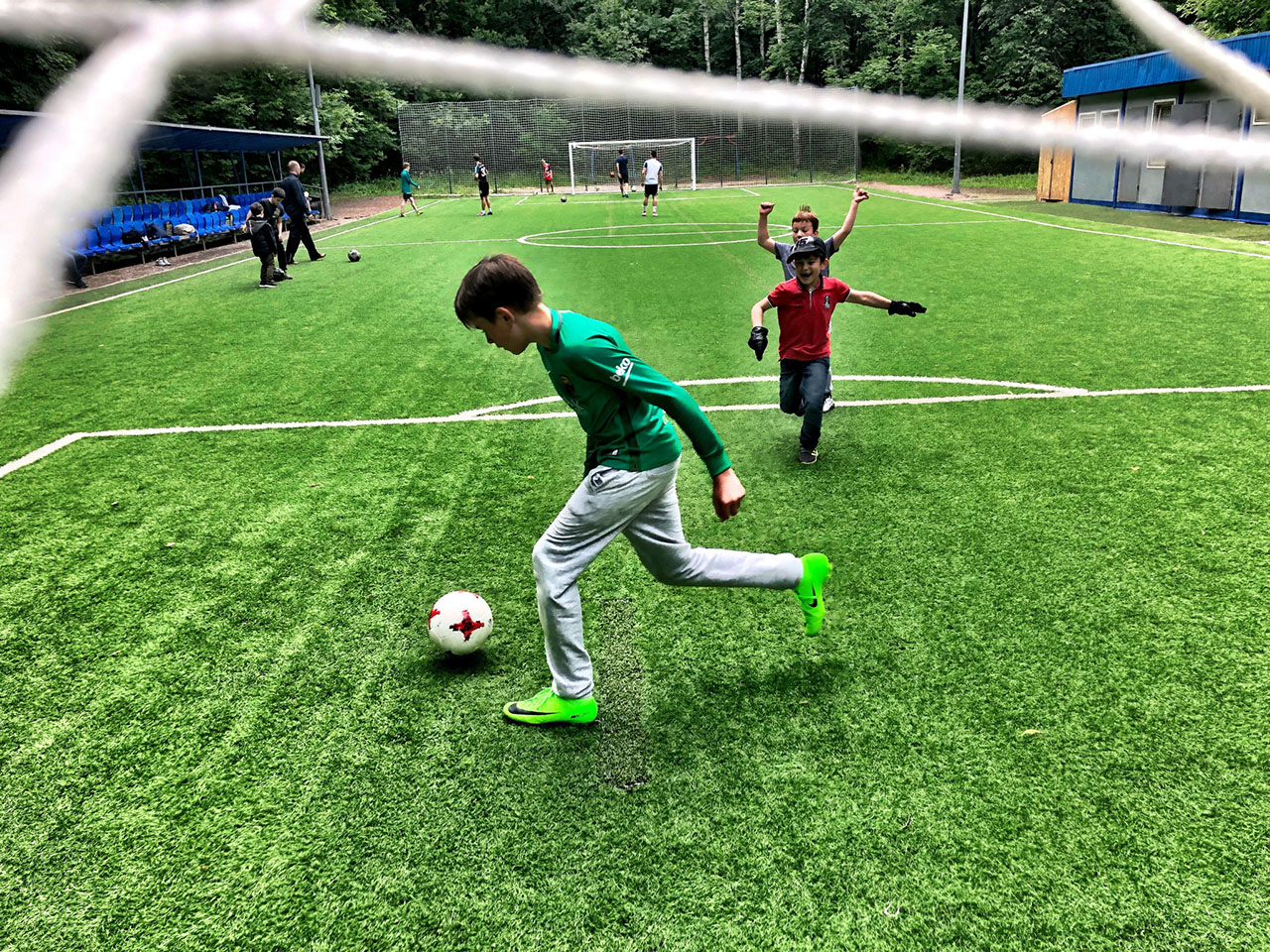
Charles Maynes
Great Tournament, Bad Team
Meanwhile, Russian football fans have still another concern: the national team. FIFA ranks it 70th — the lowest ever for a host country in pursuit of a World Cup championship.
President Putin has urged the Russian squad to “fight until the very end” but fans are preparing for the worst despite a record $12 billion dollars spent on hosting the event.
"Ole Ole”, a song by the comedian singer Semyon Slepakov that imagines the Russian team’s failures after Putin taps Ramzan Kadyrov as head trainer in a desperation move — has already emerged the unofficial anthem to the tournament.
Russia’s most recognizable star, veteran striker, Artem Dyzuba, finally lashed out at critics read to bury Russia’s chances before even a single match. “We also dream of winning a World Cup,” he reminded fans.
But Viktor Levin, a retired sportscaster who called games for the legendary teams of the Soviet Union, said the problems with modern Russia football ran deep.
“In the Soviet Union, our team battled out of genuine patriotism,” says Levin. “Now it’s all about money.“
Even the fans had changed, he argued. “Before we went to watch football with our kids. It was a family event. Now all these young people do is drink, wave their scarves, and fight”.
His friend Marshan listened in and nodded in agreement.
“What can I say? We’re bad at football,” he said, before adding a caveat worthy of the Kremlin.
“But nobody hosts better than Russia! I guarantee it!”
Publiziert am 14.06.2018







